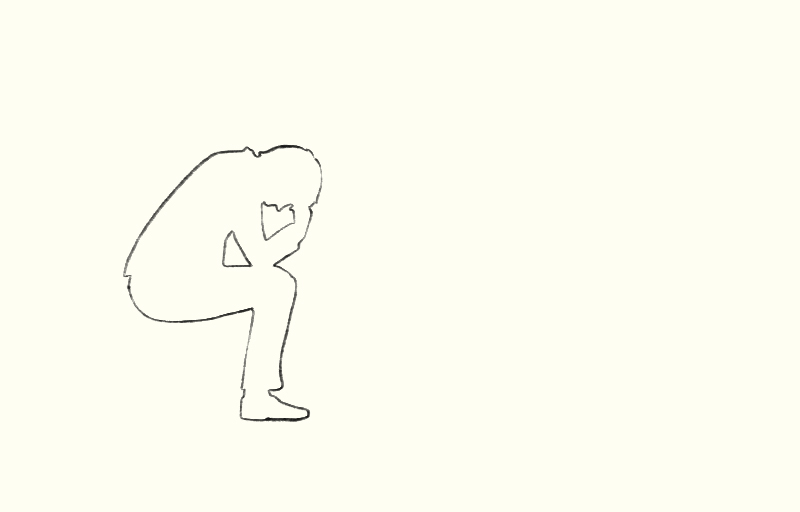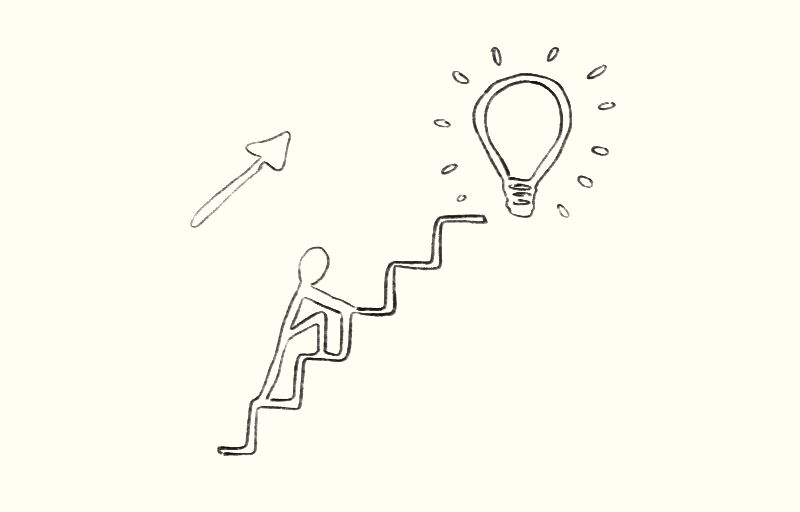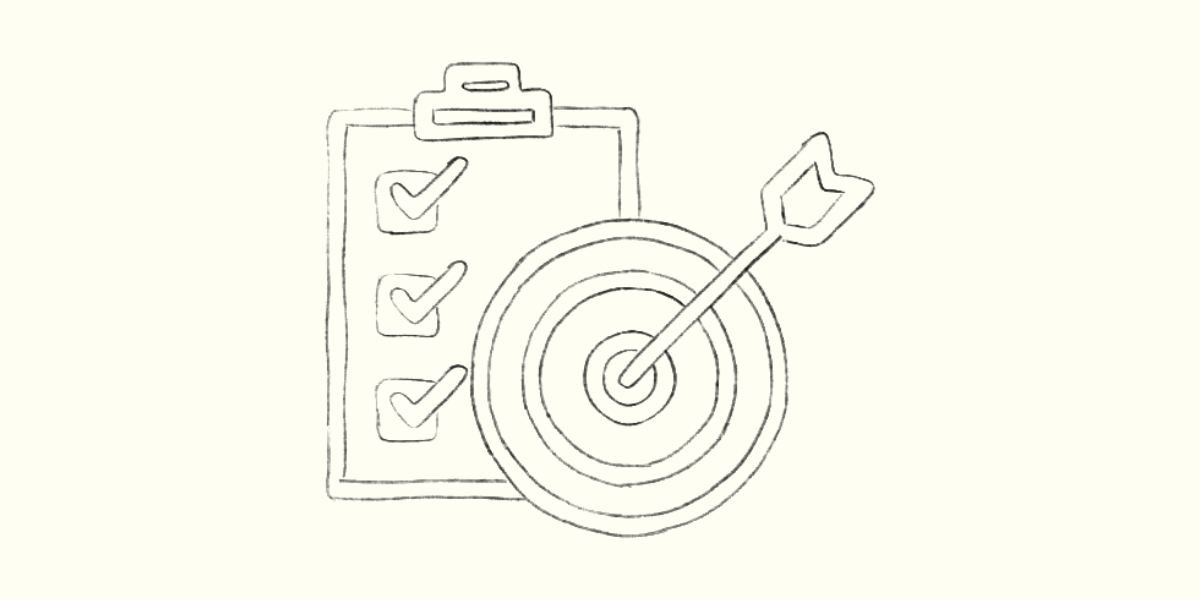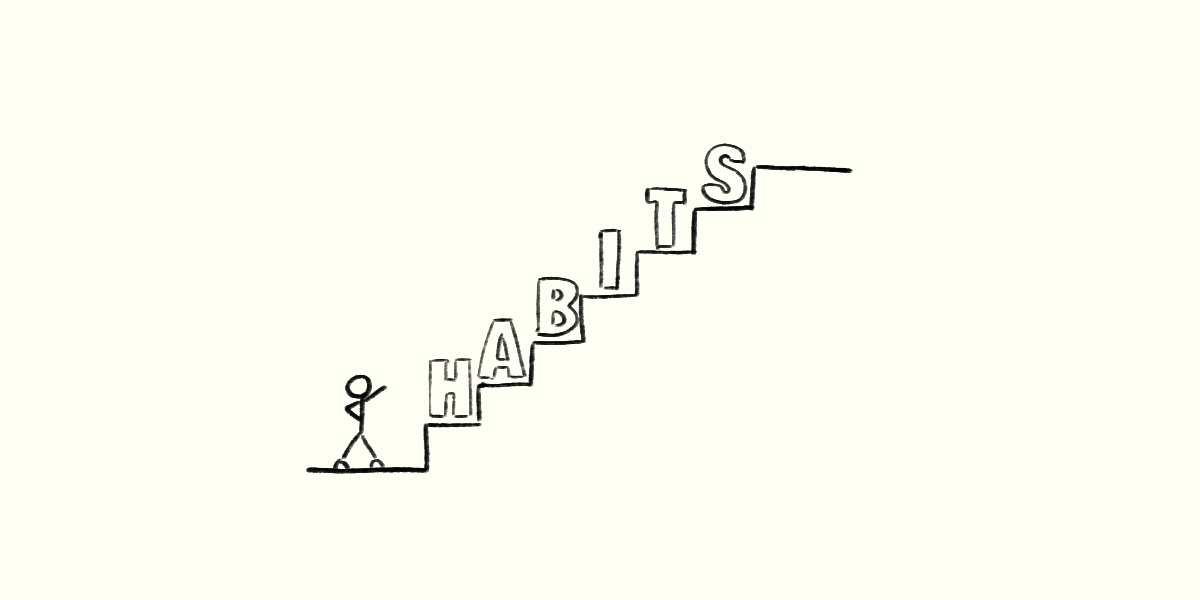This article will discuss techniques for Habit formation.
The basis of this article is the author’s personal experience.
I have summarized only the contents that I actually practiced habituation and felt effective.
This content is recommended for people like this:
- Who want to start a new habit
- Who have tried to habituate in the past but failed
- Who want to acquire skills by forming habits
Habit Formation saved my life
The first time I felt the need for habituation was when I was 26 years old.
At that time, my job was going well, but I was feeling bored at the same time.
This was because my personal growth had stagnated.
At such times, what came to mind was the trip I took to Los Angeles a year earlier.
I visited a university in Los Angeles and felt a certain emotion welling up within me.
“I want to study abroad someday.”

Such thoughts lingered in my mind, but I didn’t take any action, and time passed.
Because I couldn’t speak English, studying abroad was too lofty goal.
“It’s not okay to continue living like this.”
I realized this about two years later.
I was 28 years old by then.
At that time, I was working under a boss with whom I didn’t get along, and I was completely exhausted mentally and physically.
At that time, what I remembered was the desire to study abroad.
“To break free from this situation, let’s challenge ourselves to study English once again.”
Also, I thought I would probably regret it later in my old age if I didn’t take action now.
From there, I started studying English.
First, I bought study materials. And after work every day, I studied, motivating myself despite feeling tired.
However, that effort ended after about a week.
At that time, I worked from 8 a.m. to 9 p.m., and I didn’t have the energy to study after work.
The time I was supposed to study after work became the time to watch YouTube.
I lost confidence in myself at that time, realizing how weak my determination was.
Despite my strong determination, I couldn’t continue.

About six months after interrupting my English studies, I picked up a book at a bookstore.
It was a book about methods of habituation.
This book saved me.
Because I realized that anyone can develop habits if they know how to habituate.
Actually, mental strength isn’t as important as knowing the right way to habituate.
And I started to experiment with methods for habituation on my own.
(I will introduce what methods I tried later in the article.)
As a result of trying out methods of habituation, I was able to continue studying English for the next four years.
And now I am studying marketing and design in Australia.
Not everything turned out as ideally as planned.
I attend a college, not a university. (I couldn’t afford the tuition fees, so I couldn’t enroll in a university.)
Furthermore, my English proficiency is still inadequate, so I struggle with English every day.
However, I managed to pass the English exam to enter college and am studying what I love at a school overseas.
Thanks to the power of habit, I was able to break free from a difficult environment.
The enemy of habituation

Before I share the methods of habituation I’ve tried, I want to explain the mechanisms behind why we fail at habituation. Without understanding these mechanisms, habituation is impossible.
Humans resist change
The reason we often fail to establish habits is because humans are creatures that resist change.
There is a biological term called homeostasis, derived from the Greek words meaning “same state,” proposed by the physiologist W.B. Cannon (1871-1945).
Homeostasis is the regulatory function that strives to maintain a constant state regardless of external conditions.
Examples of homeostasis at work bellow:
– Keeping body temperature at 36 degrees Celsius despite the surroundings
– Keeping the body free of foreign substances such as bacteria
– Recovering to a healthy state after minor injuries or illnesses over time
– Maintaining a constant level of hydration within the body
Maintaining such states is crucial for human survival.
However, when trying to adopt new habits, homeostasis interferes.
Homeostasis prompts your mind to “maintain the current lifestyle or environment as much as possible.”
This is because the existing lifestyle involves minimal changes, making it easier to maintain a constant state.
In other words, when you start to establish a new habit, your brain attempts to stop it.
This mechanism is precisely why forming habits is challenging.
So, I found myself unable to continue studying English, a new habit, and instead resorted to my old habit of watching YouTube.
The greatest enemy is the strongest ally

Building upon the aforementioned reasons, let me introduce the most crucial concept for habit formation.
Turning Homeostasis into your ally
The key target of habit formation, homeostasis, needs to become our ally.
Humans naturally prefer established patterns of life.
So, if that’s the case, all we have to do is rewrite those patterns!
How to rewrite patterns of life
So, how do you rewrite your lifestyle pattern?
It starts with taking small steps.
Specifically, repeat simple actions that don’t burden you.
For me, I set a goal of just opening my English textbook when I get home. Simply opening the textbook is the goal.
With this approach, I can do it no matter how busy or tired I am.
I continued this action until the rewrite of my lifestyle pattern was complete.
And gradually, not opening the textbook started to feel odd.
When you reach this point, the rewrite is complete.
Homeostasis begins to encourage you to continue the new habit.
During the rewrite of homeostasis, there may be tough times.
However, after the rewrite is complete, starting to study requires no willpower at all.
Small steps lead to big progress
Some people might worry that simply taking easy actions won’t lead to significant progress.
But rest assured, there’s no need to worry at all.
Have you ever experienced feeling lighter once you started a task that you initially disliked?
I believe many people have experienced this.
Whether it’s studying, weightlifting, household chores, or anything else, getting started is often the hardest part.
In that case, it’s best to focus on initiating the habit.
So the most important is taking the first step.
Let’s start small.
Let’s keep it up for two months
According to research from the University of London, on average, it takes 66 days of repetition for people to rewrite a habit.
Therefore, as a guideline, if you can continue the behavior for two months, you can rewrite the habit.
However, be cautious with habits that are difficult to maintain, as they may take longer to form.
For example, if your goal is to drink a glass of water with breakfast, it takes 18 days to form that habit. On the other hand, doing 50 sit-ups every day takes 254 days to become a habit.
So, even if you manage to continue a difficult behavior for more than two months, don’t let your guard down.
Results come later, so focus on consistency
It’s never advisable to start with high-intensity actions in an attempt to achieve quick results.
In fact, high-intensity actions may yield quicker results, but they also increase the likelihood of quitting midway.
Have you ever seen someone start a high-intensity exercise regimen for weight loss only to quit after three days?
It’s far more advantageous to stick to low-intensity actions daily than to abandon a new habit after just three days.
Zero remains zero no matter how many times you add to it.
But 0.1, when continuously added, grows infinitely.
And once the habit is established, you’ll naturally be able to handle high-intensity tasks, so rest assured.
It’s like weightlifting.
Continuously training with light dumbbells may eventually leave you feeling unsatisfied, prompting you to naturally start training with heavier dumbbells.
The same was true for my English studies.
Initially, the habit was just opening the textbook, but both my daily study time and the difficulty of the textbooks continued to increase.
Steps to Establish Habit Formation

Here, I’ll explain the necessary steps to continue the habit.
Decide on the habit you want to start
First, decide on the habit you want to start.
The key here is to start small.
Set a level of action that you can continue for the first two months.
Be careful not to set overly ambitious goals that you might abandon after three days.
Examples of habits:
– Change into workout clothes when you get home
– Open study materials when you get home
– Do push-ups at least once a day
– Upon waking up, engage in meditation for at least one second.
Identifying habits to quit
Now, you may want to start a new habit from here!
However, there’s actually something you need to do first: identify habits you should quit.
I imagine you’re already busy.
Therefore, to incorporate a new habit, you’ll need to carve out some time.
To do that, you need to identify habits you should quit.
Everyone has some bad habits that waste time.
By stopping these habits, you’ll free up time to start your new habit.
Here are examples of habits you should quit:
– Spending excessive time on social media without purpose
– Extended periods of television watching
– Prolonged streaming of videos
– Excessive use of gaming apps
– Lengthy internet surfing
– Drinking alcohol
Increasing steps to quit unwanted habits
Next, increase the steps in relation to the habits you want to quit.
As bad habits are often performed almost unconsciously, increasing the steps in behavior can be effective.
For instance, you have a habit of using social media after returning home.
This action becomes a trigger when you arrive home and is often done unconsciously.
However, by increasing the steps in behavior, you create time to think calmly.
For example, implementing a measure like deleting social media apps.
To view social media, you would need to log in through a browser, adding an extra step. During this cumbersome process, you can calmly consider if you truly want to browse social media.
You may still end up using social media, but the frequency decreases significantly compared to before you increased the steps.
Here are additional examples of steps to quit a bad habit:
– Delete the app
– Unplug the TV
– Place the remote control in another room
– Keep the smartphone in another room
– Store the smartphone in a drawer
– Don’t buy alcohol in bulk. If you really want to drink, buy just one bottle at a time.
In reality, completely quitting from the day you increase the steps might be difficult.
However, the frequency gradually decreases, eventually leading to cessation, so please be reassured.
If you find it impossible to quit altogether, it’s advisable to further increase the steps.
For instance, placing your smartphone in a different room after returning home.
Reducing steps to start desirable habits
For habits you want to initiate, reduce the steps in behavior.
For example, in my case, I always carry my study materials with me so they’re always accessible.
For those wanting to make exercise a habit, placing workout clothes in an easily accessible location would be effective.
Any slight inconvenience may become an excuse to quit the habit.
Eliminate all factors that could potentially become excuses.
Here are examples of reducing action steps:
– Always carry educational materials with you
– Place sportswear in an easily accessible location
– Use sportswear as casual wear to be ready for exercise at any time
– Keep books near the sofa
– Keep a yoga mat laid out in the room at all times.
Restarting the next day even if you fail
Now, let’s talk realistically.
There have been times when, despite doing all this, I couldn’t maintain the habit.
Days when I made significant mistakes at work or drank too much at a celebration, for example.
On such days, I couldn’t continue my study routine.
It’s likely that everyone experiences days like these.
However, on such days, aim to restart the habit the following day.
From my experience, once you stop a habit once, restarting it becomes difficult. In fact, there have been times when I stopped the habit for 3 to 7 days before restarting.
Other tips to make habit formation easier

Lastly, I’d like to introduce some methods that are not essential but can be helpful when establishing habits.
These are methods I’ve personally tried and found effective.
Record keeping
Keep a record of your actions.
In my case, since I write a diary every day, I recorded my progress in it.
The most important aspect of this is analyzing the reasons for not being able to continue on certain days.
By analyzing the reasons, you can come up with countermeasures.
Invest money
Investing money can be a strong motivator.
I struggled with studying on weekends, often finding myself wasting time on YouTube from morning till evening.
To combat this, I invested in a paid study space over weekends.
Spending around $100 a month motivated me not to waste the money and utilize the study space effectively.
Purchase quality tools
Buying quality tools can also be effective.
Tools with an appealing appearance or from a brand you admire can boost motivation.
And, Tools that reduce the steps in your actions can make habit formation easier.
For instance, when I started online English lessons, the long startup time of my old computer was a hindrance. So, I invested in an new tablet with a shorter startup time, which made studying more convenient and enjoyable.
Declare to close ones.
Announcing it to close ones, such as family or close friends, can be effective.
I declared my goal of studying abroad to my best friend.
In my case, I was able to exert more effort than usual.
Because I didn’t want to show my pathetic side to my close friends.
Here is the content for this time.
The following article is a related article to this one.
An article for those who are struggling with what habits to establish in the first place. Setting life goals clarifies what you want to do.
If you’re unsure about what habits to establish, please refer to it.

For those who want to reduce their screen time and make time to start new habits.

Thank you for reading until the end.
If you have any questions, please feel free to contact me through the social media links below.
I also make vlogs, so I’d be happy if you could check them out!
Sayonara






Comment